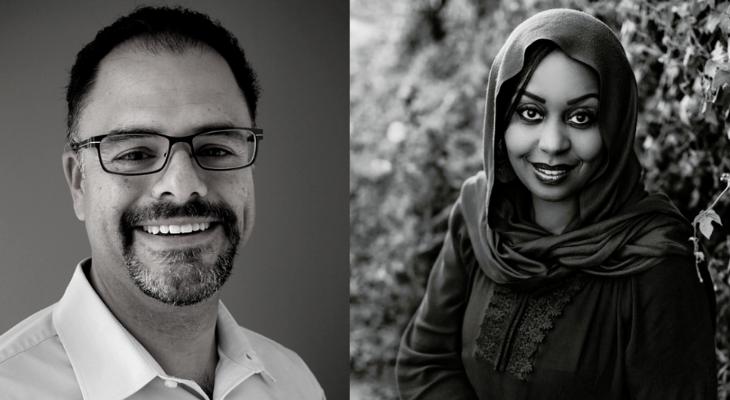Becoming Muslim BONUS: Some History of Islam in America
March 11, 2022

Interfaith America is pleased to share the series “Becoming Muslim” from the podcast “The Spiritual Edge.” The series explores the motivations and challenges of converts as they carve out a unique path for being Muslim in the United States. Over seven episodes, the podcast profiles eight individuals from various cultural backgrounds who offer different windows into this diverse and complex religion. A spiritual seeker travels to Cairo, a prison inmate hangs with the Muslim brothers to stay safe, a college basketball player finds the Nation of Islam, and more.
Listen to the bonus episode: Historian Dr. Edward E. Curtis IV and Becoming Muslim host Hana Baba
Share
Related Articles
American Civic Life
Eboo Patel and Wajahat Ali: Is “Interfaith America” Even Possible?
American Civic Life
We Commemorate, We Commit: Out of Catastrophe, a Conversation on Connection and Repair
American Civic Life
Related Audio
Becoming Muslim: A history of Islam in America
How did Islam first arrive on the North American continent? Did enslaved West Africans bring it to America? Or did Muslims sail with Christopher Columbus first? Later, Islam spread in the United States, among various communities. How did that happen? In this BONUS conversation that’s part of the Becoming Muslim series, host Hana Baba dives into the history of Islam in America with Dr. Edward E. Curtis IV, a scholar of Muslim American, African American and Arab American history and life.
“African-Americans in the 1920s, just like African-Americans in the 1800s, never thought of themselves as completely cut off from Africa and its history and its heritage. And so by converting to Islam, they were indeed laying claim to a spiritual, historical, political, social resource that they that they knew had been part of their people’s history for a long, long time.” — Edward E. Curtis IV
“African-Americans in the 1920s, just like African-Americans in the 1800s, never thought of themselves as completely cut off from Africa and its history and its heritage. And so by converting to Islam, they were indeed laying claim to a spiritual, historical, political, social resource that they that they knew had been part of their people’s history for a long, long time.” — Edward E. Curtis IV



